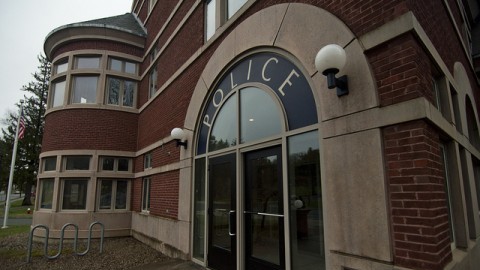As news of Derek Chauvin’s guilty verdict was released, I could not help but feel bittersweet. While it is good that he’s getting some form of accountability, policing and our modern day “justice” system uphold the same systems of racism they were built on. The Prison Industrial Complex (PIC) is rooted in the oppression of the most marginalized people in our communities.
The origins of policing are traceable to Slave Patrols in the 1700s, an organization that was created to instill terror upon any slaves considering an uprising. In jails, modern day slavery is still legal and alive through a loophole in the 13th amendment that outlaws slavery, “except as punishment for a crime whereof the party shall have been duly convicted.”Black men are imprisoned at six times the rate of white men and one in three Black men have a chance of being imprisoned in their life. Thus, it is ludicrous to call for reforming the police. How is one supposed to reform a system that is working exactly like it was made to? You cannot fix what isn’t broken.
Not only does the PIC have monstrous roots in oppression, but it also exploits off of said oppression. While private prisons in the United States only account for around 8 percent of all prisons, their turn-around is $74 billion per year. Since they are for-profit corporations, this naturally means that prisons are more profitable when they have more prisoners. The law has been built up over centuries to protect the interests of the most powerful over that of marginalized people. Much of the role of the police — whether they act legally or otherwise — is to defend power against the lower classes, Black and Brown people. As such, claiming that prisons have incentive to rehabilitate is humorous at best.
The more we call for surface level, “feel-good” reform, the less we will see change. While Chauvin’s recent guilty verdict may grant some consolation, it is not enough. A police officer put his knee on George Floyd’s neck for nine minutes and 29 seconds, killing him in broad daylight, and we were still on the edges of our seats, scared for the verdict. We witnessed a four week trial to a death we saw happen. No amount of reform would have changed that. Despite what Nancy Pelosi may say, George Floyd did not “sacrifice his life for justice.” His life was taken from him. He was murdered at the hands of the state. No single Black person should be killed to achieve justice or equality — those rights are owed to them, for free. Chauvin’s conviction means nothing if the entire system does not go down with him. We cannot allow his prosecution to blind us from the thousands of non-prosecuted cops who still wear their badge. We cannot allow for it to blind us from the fact that a 15-year-old Black girl, Ma’Khia Bryant, was killed by a cop within hours of Chauvin’s conviction. The problem is not as much Chauvin as it is police power, or abuse of power and the system as a whole.
While it may sound crazy to call for the eradication of prisons and policing as we know it, the truth is that punitive responses to social problems will never work as a catch all solution. We can’t just persist with killing and jailing poor and marginalized communities. We must call for the complete abolition of the PIC and tear down every single system that is upheld by white supremacist values. We must stop calling it the justice system when the only way to reach justice is through its abolishment.
No amount of reform will ever bring any of the hundreds and thousands of Black people killed by enforcement justice. Let us forever say their names and let their legacy live on. This is not the end.
Ruya Hazeyen can be reached at [email protected]. Follow her on Twitter @ruyahazeyen.



















